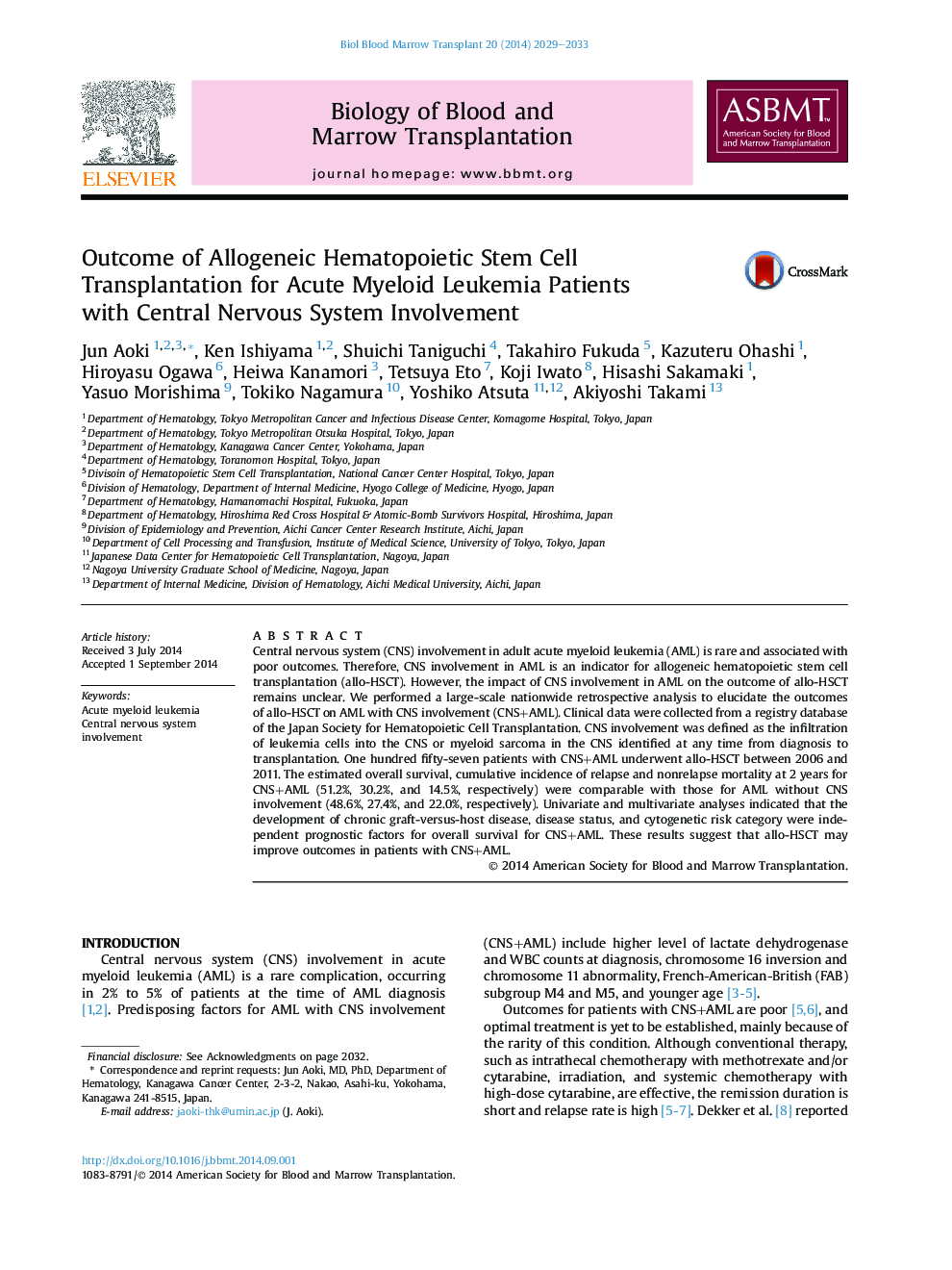| Article ID | Journal | Published Year | Pages | File Type |
|---|---|---|---|---|
| 2103510 | Biology of Blood and Marrow Transplantation | 2014 | 5 Pages |
Central nervous system (CNS) involvement in adult acute myeloid leukemia (AML) is rare and associated with poor outcomes. Therefore, CNS involvement in AML is an indicator for allogeneic hematopoietic stem cell transplantation (allo-HSCT). However, the impact of CNS involvement in AML on the outcome of allo-HSCT remains unclear. We performed a large-scale nationwide retrospective analysis to elucidate the outcomes of allo-HSCT on AML with CNS involvement (CNS+AML). Clinical data were collected from a registry database of the Japan Society for Hematopoietic Cell Transplantation. CNS involvement was defined as the infiltration of leukemia cells into the CNS or myeloid sarcoma in the CNS identified at any time from diagnosis to transplantation. One hundred fifty-seven patients with CNS+AML underwent allo-HSCT between 2006 and 2011. The estimated overall survival, cumulative incidence of relapse and nonrelapse mortality at 2 years for CNS+AML (51.2%, 30.2%, and 14.5%, respectively) were comparable with those for AML without CNS involvement (48.6%, 27.4%, and 22.0%, respectively). Univariate and multivariate analyses indicated that the development of chronic graft-versus-host disease, disease status, and cytogenetic risk category were independent prognostic factors for overall survival for CNS+AML. These results suggest that allo-HSCT may improve outcomes in patients with CNS+AML.
